[Anchor]
The protectionism expected to strengthen during Trump's second term is another challenge we must overcome.
Companies are anxious about the prospect of increased tariffs and reduced subsidies.
Reporter Park Kyung-jun has the details.
[Report]
A mid-sized company that manufactures optical-based medical devices.
They primarily export products to Europe and the United States, but are now worried about the potential increase in tariff burdens.
[Kim Hu-sik/CEO of Vieworks: "The regulations are incredibly strict, so if we can't sell unless we produce in the U.S., then we have to produce in the U.S. The company needs to survive."]
U.S. President-elect Donald Trump has promised to impose a 10-20% tariff on all imported goods.
If this becomes a reality, it will undoubtedly be a significant burden, and major companies are seeking ways to navigate this by increasing local investment and production.
During his presidency, Trump has consistently urged our corporate leaders to invest more in the U.S. whenever he met with them.
[Donald Trump/then U.S. President/June 2019: " Stand up, the three, Hyundai, Samsung, CJ, and SK. Where is SK? Thank you very much. Congratulations."]
The semiconductor industry, which has received U.S. government subsidies in exchange for large-scale investments like Samsung Electronics' semiconductor foundry in Texas and SK Hynix's production facility in Indiana, is worried that these subsidies might be cut off.
Although it was confirmed at the end of last year that they would receive hundreds of billions to trillions of won in subsidies, there is a possibility that these could be reduced or eliminated.
Subsidies for electric vehicles and batteries are also at risk of disappearing, which would inevitably harm our automotive industry that has built factories in the U.S.
However, there are also predictions that Trump's threats may not all materialize at once.
[Cho Sung-dae/Director of Trade Research at the Korea International Trade Association: "The CHIPS Act is still something the U.S. really needs, so while they may not want to spend money on semiconductors, it seems difficult to completely nullify the subsidies..."]
Our government announced today (1.15) that it will strengthen support for local activities of the industries during the economic ministers' meeting.
This is KBS News, Park Kyung-jun.
The protectionism expected to strengthen during Trump's second term is another challenge we must overcome.
Companies are anxious about the prospect of increased tariffs and reduced subsidies.
Reporter Park Kyung-jun has the details.
[Report]
A mid-sized company that manufactures optical-based medical devices.
They primarily export products to Europe and the United States, but are now worried about the potential increase in tariff burdens.
[Kim Hu-sik/CEO of Vieworks: "The regulations are incredibly strict, so if we can't sell unless we produce in the U.S., then we have to produce in the U.S. The company needs to survive."]
U.S. President-elect Donald Trump has promised to impose a 10-20% tariff on all imported goods.
If this becomes a reality, it will undoubtedly be a significant burden, and major companies are seeking ways to navigate this by increasing local investment and production.
During his presidency, Trump has consistently urged our corporate leaders to invest more in the U.S. whenever he met with them.
[Donald Trump/then U.S. President/June 2019: " Stand up, the three, Hyundai, Samsung, CJ, and SK. Where is SK? Thank you very much. Congratulations."]
The semiconductor industry, which has received U.S. government subsidies in exchange for large-scale investments like Samsung Electronics' semiconductor foundry in Texas and SK Hynix's production facility in Indiana, is worried that these subsidies might be cut off.
Although it was confirmed at the end of last year that they would receive hundreds of billions to trillions of won in subsidies, there is a possibility that these could be reduced or eliminated.
Subsidies for electric vehicles and batteries are also at risk of disappearing, which would inevitably harm our automotive industry that has built factories in the U.S.
However, there are also predictions that Trump's threats may not all materialize at once.
[Cho Sung-dae/Director of Trade Research at the Korea International Trade Association: "The CHIPS Act is still something the U.S. really needs, so while they may not want to spend money on semiconductors, it seems difficult to completely nullify the subsidies..."]
Our government announced today (1.15) that it will strengthen support for local activities of the industries during the economic ministers' meeting.
This is KBS News, Park Kyung-jun.
■ 제보하기
▷ 카카오톡 : 'KBS제보' 검색, 채널 추가
▷ 전화 : 02-781-1234, 4444
▷ 이메일 : kbs1234@kbs.co.kr
▷ 유튜브, 네이버, 카카오에서도 KBS뉴스를 구독해주세요!
- Concerns over U.S. protectionism
-
- 입력 2025-01-16 02:31:25
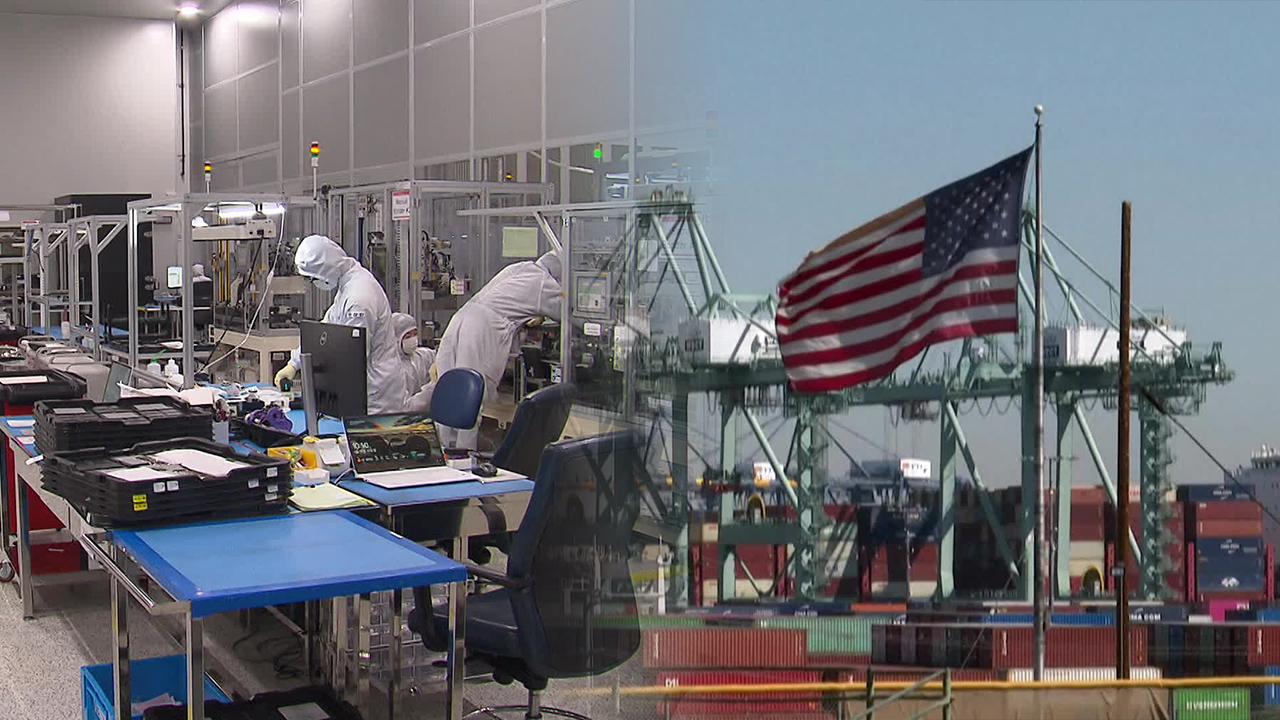
[Anchor]
The protectionism expected to strengthen during Trump's second term is another challenge we must overcome.
Companies are anxious about the prospect of increased tariffs and reduced subsidies.
Reporter Park Kyung-jun has the details.
[Report]
A mid-sized company that manufactures optical-based medical devices.
They primarily export products to Europe and the United States, but are now worried about the potential increase in tariff burdens.
[Kim Hu-sik/CEO of Vieworks: "The regulations are incredibly strict, so if we can't sell unless we produce in the U.S., then we have to produce in the U.S. The company needs to survive."]
U.S. President-elect Donald Trump has promised to impose a 10-20% tariff on all imported goods.
If this becomes a reality, it will undoubtedly be a significant burden, and major companies are seeking ways to navigate this by increasing local investment and production.
During his presidency, Trump has consistently urged our corporate leaders to invest more in the U.S. whenever he met with them.
[Donald Trump/then U.S. President/June 2019: " Stand up, the three, Hyundai, Samsung, CJ, and SK. Where is SK? Thank you very much. Congratulations."]
The semiconductor industry, which has received U.S. government subsidies in exchange for large-scale investments like Samsung Electronics' semiconductor foundry in Texas and SK Hynix's production facility in Indiana, is worried that these subsidies might be cut off.
Although it was confirmed at the end of last year that they would receive hundreds of billions to trillions of won in subsidies, there is a possibility that these could be reduced or eliminated.
Subsidies for electric vehicles and batteries are also at risk of disappearing, which would inevitably harm our automotive industry that has built factories in the U.S.
However, there are also predictions that Trump's threats may not all materialize at once.
[Cho Sung-dae/Director of Trade Research at the Korea International Trade Association: "The CHIPS Act is still something the U.S. really needs, so while they may not want to spend money on semiconductors, it seems difficult to completely nullify the subsidies..."]
Our government announced today (1.15) that it will strengthen support for local activities of the industries during the economic ministers' meeting.
This is KBS News, Park Kyung-jun.
The protectionism expected to strengthen during Trump's second term is another challenge we must overcome.
Companies are anxious about the prospect of increased tariffs and reduced subsidies.
Reporter Park Kyung-jun has the details.
[Report]
A mid-sized company that manufactures optical-based medical devices.
They primarily export products to Europe and the United States, but are now worried about the potential increase in tariff burdens.
[Kim Hu-sik/CEO of Vieworks: "The regulations are incredibly strict, so if we can't sell unless we produce in the U.S., then we have to produce in the U.S. The company needs to survive."]
U.S. President-elect Donald Trump has promised to impose a 10-20% tariff on all imported goods.
If this becomes a reality, it will undoubtedly be a significant burden, and major companies are seeking ways to navigate this by increasing local investment and production.
During his presidency, Trump has consistently urged our corporate leaders to invest more in the U.S. whenever he met with them.
[Donald Trump/then U.S. President/June 2019: " Stand up, the three, Hyundai, Samsung, CJ, and SK. Where is SK? Thank you very much. Congratulations."]
The semiconductor industry, which has received U.S. government subsidies in exchange for large-scale investments like Samsung Electronics' semiconductor foundry in Texas and SK Hynix's production facility in Indiana, is worried that these subsidies might be cut off.
Although it was confirmed at the end of last year that they would receive hundreds of billions to trillions of won in subsidies, there is a possibility that these could be reduced or eliminated.
Subsidies for electric vehicles and batteries are also at risk of disappearing, which would inevitably harm our automotive industry that has built factories in the U.S.
However, there are also predictions that Trump's threats may not all materialize at once.
[Cho Sung-dae/Director of Trade Research at the Korea International Trade Association: "The CHIPS Act is still something the U.S. really needs, so while they may not want to spend money on semiconductors, it seems difficult to completely nullify the subsidies..."]
Our government announced today (1.15) that it will strengthen support for local activities of the industries during the economic ministers' meeting.
This is KBS News, Park Kyung-jun.
-
-

박경준 기자 kjpark@kbs.co.kr
박경준 기자의 기사 모음
-
이 기사가 좋으셨다면
-
좋아요
0
-
응원해요
0
-
후속 원해요
0










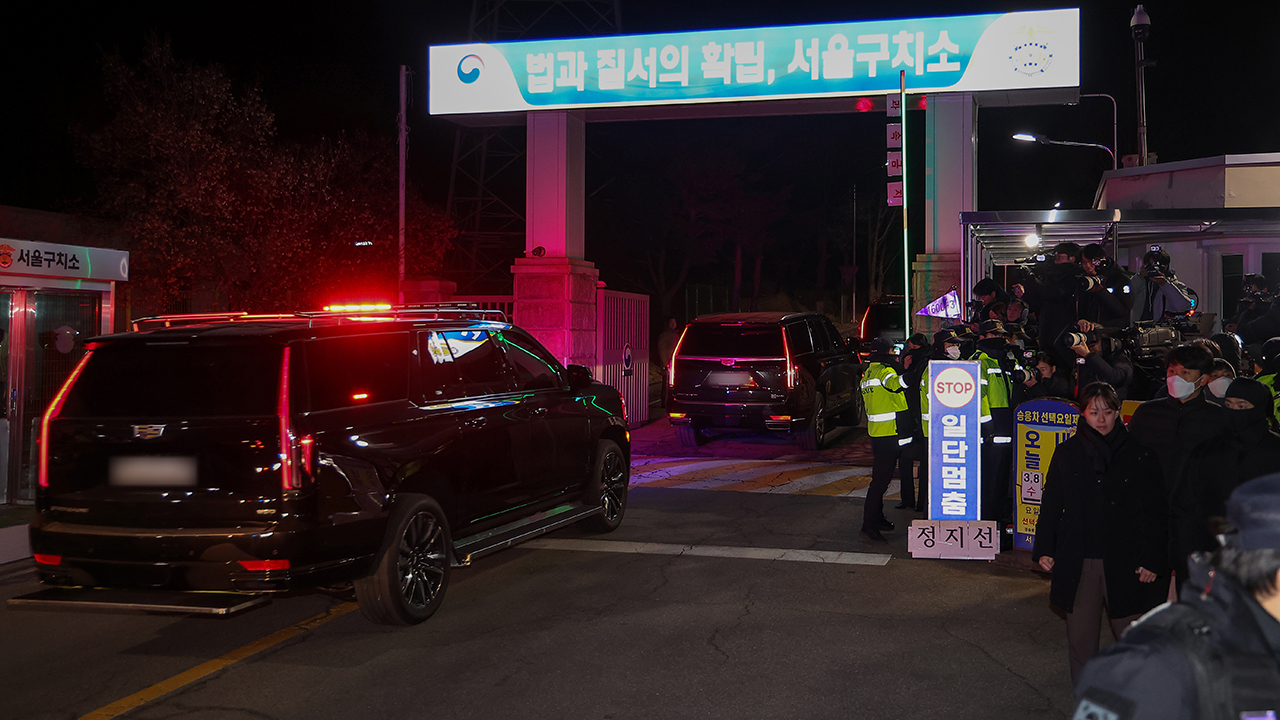
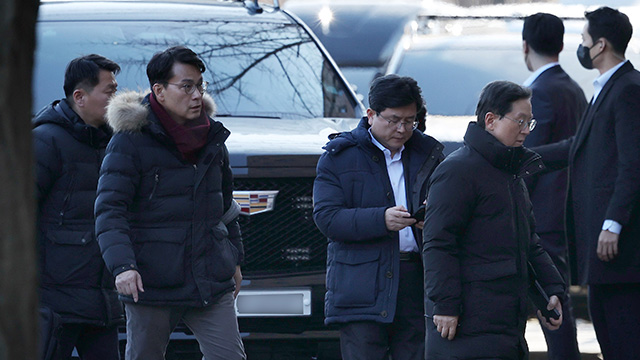
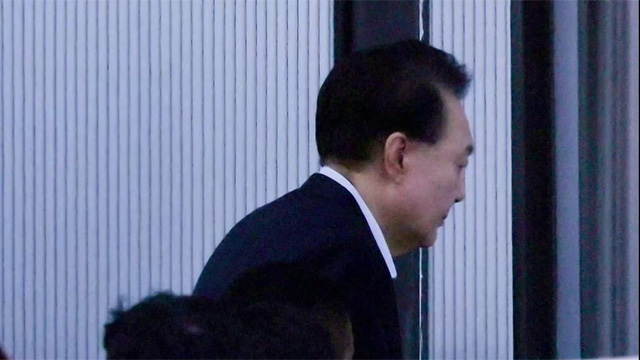
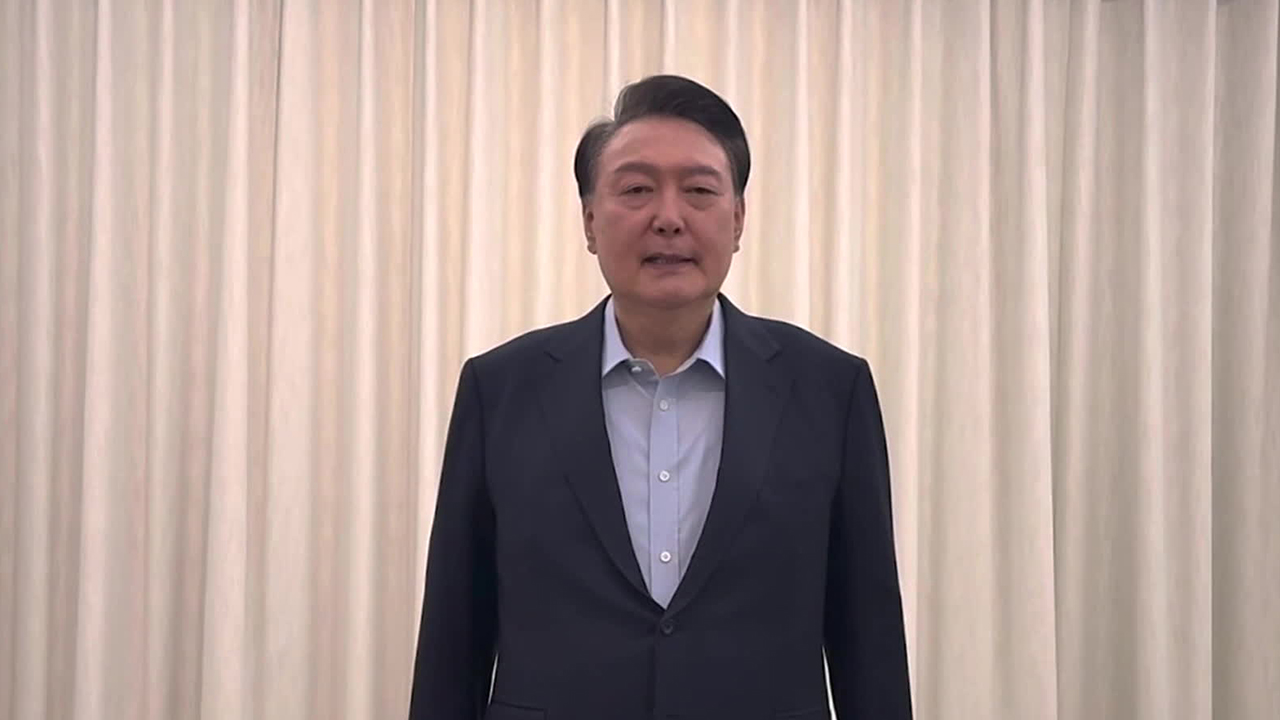

이 기사에 대한 의견을 남겨주세요.